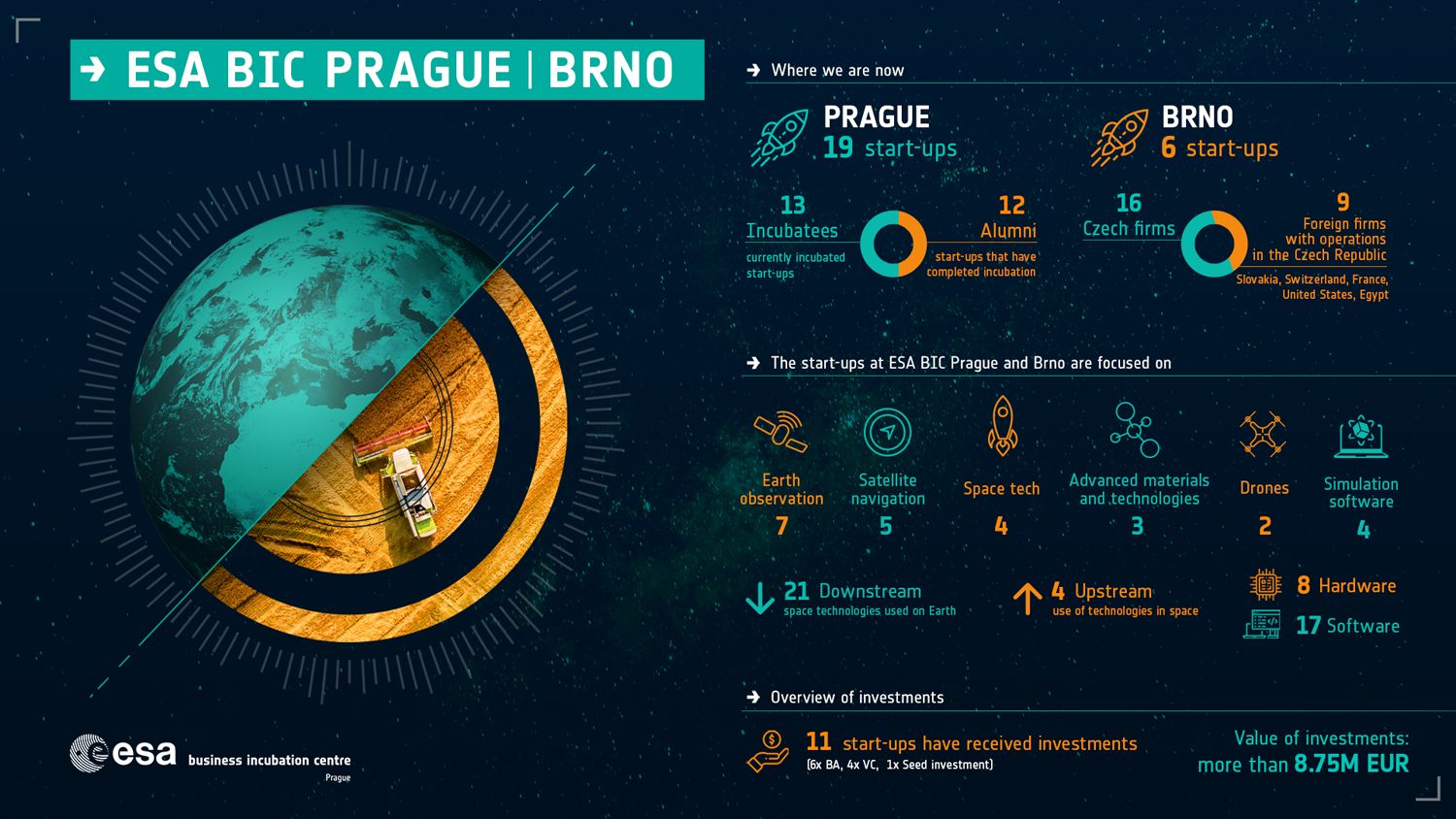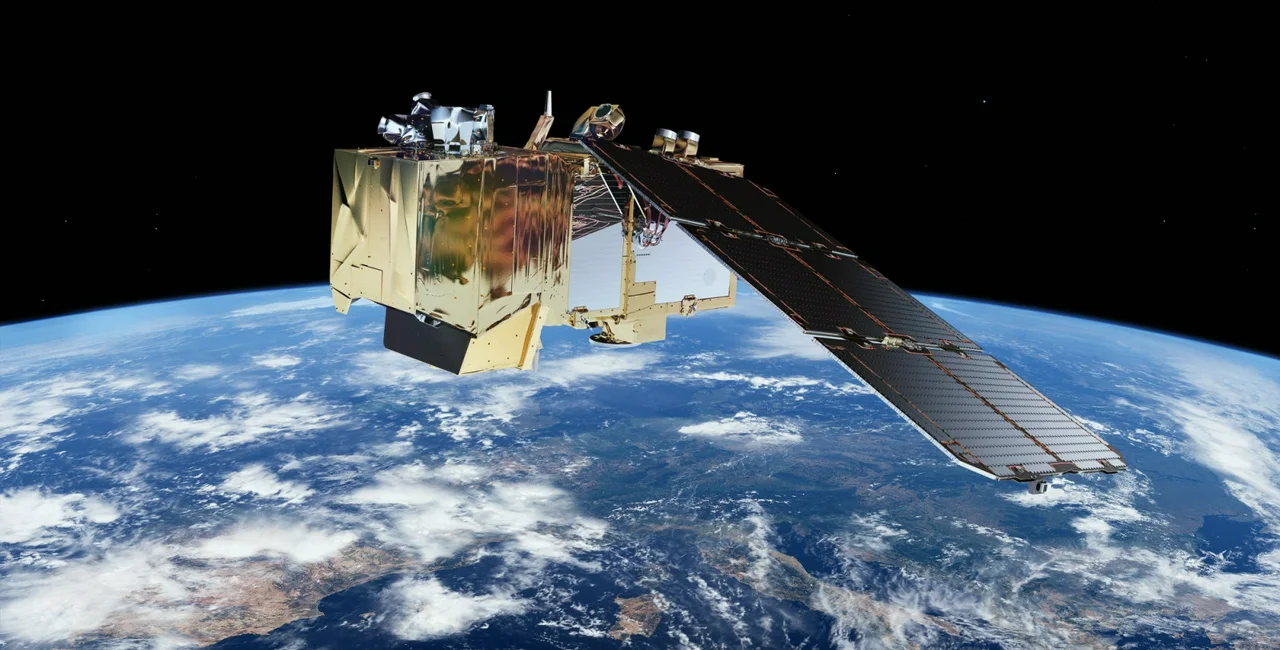
A smart app for spraying pesticides that uses satellite data, x-rays that can analyze works of art, ultra-lightweight bicycles made from graphite fibers – these are some of the projects that are being developed at the European Space Agency Business Incubation Centre (ESA BIC), a program with branches in Prague and Brno that supports projects that apply concepts and technologies from outer space programs for terrestrial use.
PARTNER ARTICLE
The ESA is now celebrating four years in the Czech Republic, after first launching its Prague branch in 2016 and in Brno from 2018. There have been 25 different projects developed at the ESA BIC in the Czech Republic over that span that have shared investments totaling 240 million crowns.
“Twenty-five start-ups have entered the ESA BIC space incubator in the past four years. At present, thirteen are being incubated; the rest rank among our alumni, though we remain in contact,” CzechInvest CEO Patrik Reichl stated in a press release. CzechInvest, part of the Czech Ministry of Industry and Trade, operates the ESA BIC in the Czech Republic.
While the majority of ESA BIC projects developed in the Czech Republic have come from Czech start-ups, projects by companies from Slovakia, France, Switzerland, Egypt, India, and the United States have all been developed at the Czech branches of ESA BIC.
Together with the Prague-based European GNSS Agency (GSA), an EU satellite authority that aims to provide a European alternative to the American GPS standard, the ESA BIC has helped shape the Czech Republic’s growing reputation as Europe’s center for space technology.
“Start-ups here mostly focus on the areas of Earth observation and satellite data, which corresponds to the presence of the GSA, which makes the Czech Republic an attractive location in this respect,” Reichl stated.
“We annually attempt to popularize space activities during Czech Space Week, which we are planning also for this year in the first half of November, if possible.”

The development of space technologies for use on Earth has a storied history: personal computers, cordless power tools, Teflon and Tang are just some of the things that were developed for use in outer space before becoming a hit on Earth.
Over the past four years, space start-ups developed in the Czech Republic under ESA BIC have achieved numerous successes.
InsightART, which develops x-ray technologies to analyze artworks, has discovered new paintings by Munch and van Gogh. Dronetag, which helps makes consumer drones smarter and safer, won the European grand prize in the Galileo Masters competition. Festka, the lightweight bicycles made from the same materials used in satellites, were recently spotted on the streets of Prague being ridden by Orlando Bloom.
In May of this year, two new projects joined the ESA BIC program in the Czech Republic.
VRgineers, which is being incubated at ESA BIC in Brno, develops profession-grade VR equipment including devices with haptic interaction – so that when a user touches something in a virtual space, they receive appropriate feedback from the device to create the sense of touch. VRgineers’ technology is also used by NASA astronauts for training on Earth before stays in the International Space Station.
At ESA BIC in Prague, Varistar analyzes satellite data from both European Sentinel and American Landsat satellites to help decrease ecological stress in the agricultural industry. It combines the satellite data with historical data and other information to creates maps of potential crop yields and revenues.
More information about ESA BIC and the projects it supports can be found at www.esa-bic.cz.












 Reading time: 3 minutes
Reading time: 3 minutes 

















